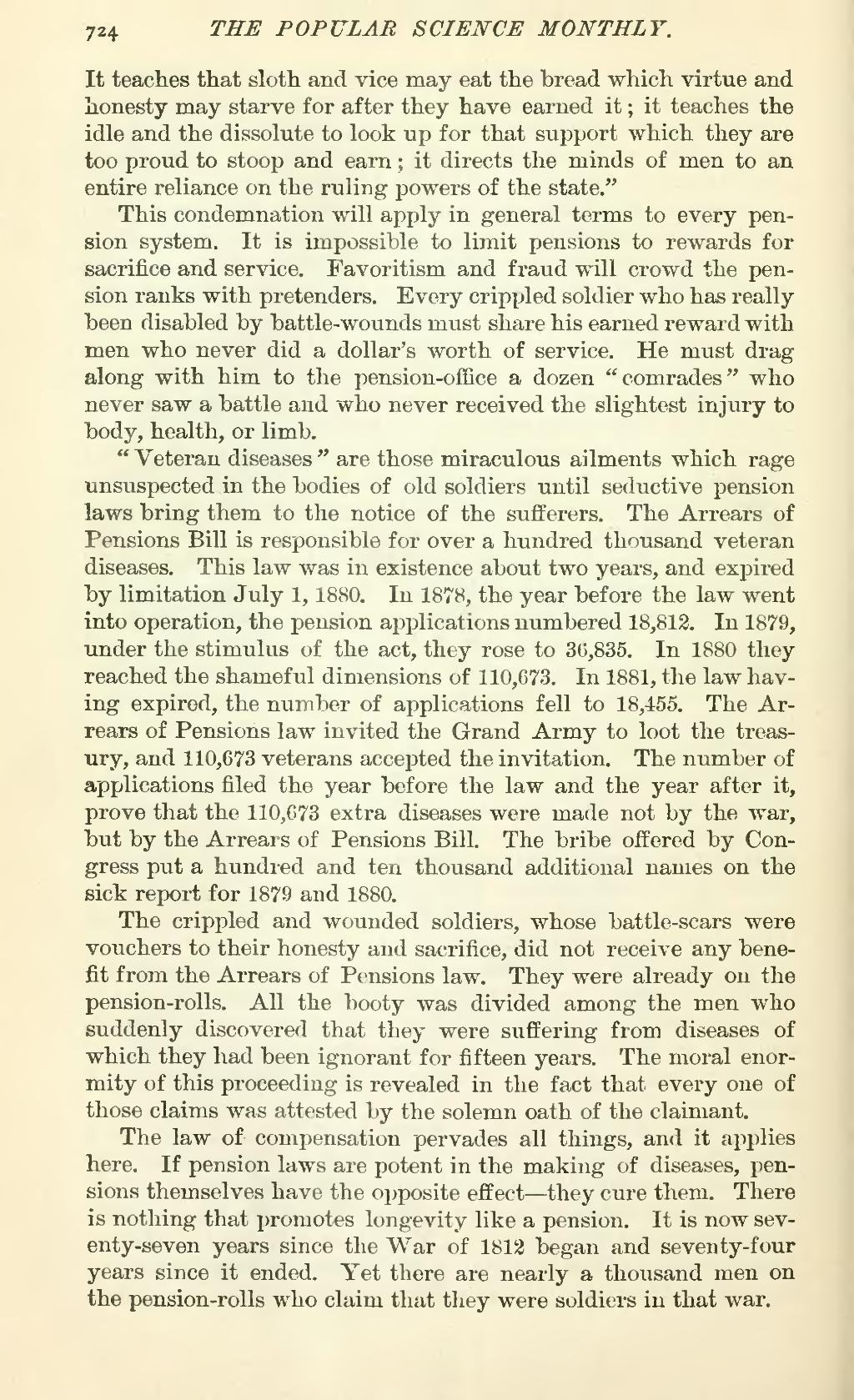It teaches that sloth and vice may eat the bread which virtue and honesty may starve for after they have earned it; it teaches the idle and the dissolute to look up for that support which they are too proud to stoop and earn; it directs the minds of men to an entire reliance on the ruling powers of the state."
This condemnation will apply in general terms to every pension system. It is impossible to limit pensions to rewards for sacrifice and service. Favoritism and fraud will crowd the pension ranks with pretenders. Every crippled soldier who has really been disabled by battle-wounds must share his earned reward with men who never did a dollar's worth of service. He must drag along with him to the pension-office a dozen "comrades" who never saw a battle and who never received the slightest injury to body, health, or limb.
"Veteran diseases" are those miraculous ailments which rage unsuspected in the bodies of old soldiers until seductive pension laws bring them to the notice of the sufferers. The Arrears of Pensions Bill is responsible for over a hundred thousand veteran diseases. This law was in existence about two years, and expired by limitation July 1, 1880. In 1878, the year before the law went into operation, the pension applications numbered 18,812. In 1879, under the stimulus of the act, they rose to 36,835. In 1880 they reached the shameful dimensions of 110,673. In 1881, the law having expired, the number of applications fell to 18,455. The Arrears of Pensions law invited the Grand Army to loot the treasury, and 110,673 veterans accepted the invitation. The number of applications filed the year before the law and the year after it, prove that the 110,673 extra diseases were made not by the war, but by the Arrears of Pensions Bill. The bribe offered by Congress put a hundred and ten thousand additional names on the sick report for 1879 and 1880.
The crippled and wounded soldiers, whose battle-scars were vouchers to their honesty and sacrifice, did not receive any benefit from the Arrears of Pensions law. They were already on the pension-rolls. All the booty was divided among the men who suddenly discovered that they were suffering from diseases of which they had been ignorant for fifteen years. The moral enormity of this proceeding is revealed in the fact that every one of those claims was attested by the solemn oath of the claimant.
The law of compensation pervades all things, and it applies here. If pension laws are potent in the making of diseases, pensions themselves have the opposite effect—they cure them. There is nothing that promotes longevity like a pension. It is now seventy-seven years since the War of 1812 began and seventy-four years since it ended. Yet there are nearly a thousand men on the pension-rolls who claim that they were soldiers in that war.

